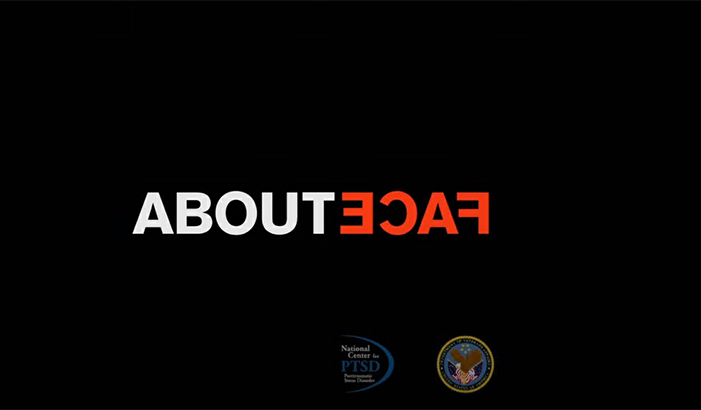Post-traumatic stress disorder (PTSD) is a psychological condition that can develop in anyone who experiences or witnesses a traumatic event such as an assault, natural disaster, or military combat. It is characterized by intrusive thoughts about the event, anxiety, flashbacks, and avoidance of similar situations. At its most severe, PTSD can significantly impair a person’s ability to function at work, at home, and socially.
An estimated six out of every 100 people in the U.S. will have PTSD at some point in their lives, with women twice as likely as men to develop PTSD, due at least in part to the types of trauma women are more likely to experience, such as sexual assault. [1] About one in three women who served in the military reports having experienced military sexual assault.[2]
VA offers a range of PTSD treatments for Veterans, from talk therapy to medications that are proven to help, and conducts research to expand understanding of PTSD and the best treatment approaches for Veterans. For example, HSR&D investigators at the Center for Care Delivery and Outcomes Research collaborate with VA’s Office of Mental Health and Suicide Prevention and National Center for PTSD to study trauma recovery and PTSD therapy implementation strategies, while researchers at HSR&D’s Center for Mental Healthcare and Outcomes Research work with the Behavioral Health Quality Enhancement Research Initiative (QUERI) and others to improve Veterans’ access to mental healthcare. Additionally, Virtual Care QUERI aims to advance optimal therapies for Veterans with PTSD—including a telemental app that supports PTSD therapy—and to improve information exchange among VA and community care facilities.
Following are some recent HSR&D studies related to PTSD.
“This landmark trial provides the best scientific evidence on the benefits of service dogs for treating Veterans with PTSD relative to trained emotional support dogs.”—Todd Wagner, PhD
PTSD is very common among Veterans and recently has become dramatically more prevalent. Current treatments are not effective in all individuals, creating a need for new treatments that work with existing therapies. Because the human-dog bond has been shown to benefit people physiologically as well as psychologically, service dogs trained to assist Veterans with PTSD appear to be a promising augmentation strategy.
About This Study
This study assessed the therapeutic and economic benefits of pairing service dogs versus emotional support dogs with Veterans who have PTSD. (Service dogs are trained to perform tasks directly related to a person’s disability; emotional support dogs have no special training.) A multicenter trial randomly paired 181 Veterans with a service dog or emotional support dog from December 2014 to June 2017. Participants were then followed for 18 months. Primary outcomes included overall functioning and quality of life. Secondary outcomes included PTSD symptoms, suicidal ideation, depression, sleep, healthcare costs and use, medication adherence, employment, and productivity.
Findings
Implications
Pairing service dogs with Veterans who have PTSD can complement existing evidence-based treatments and may result in high levels of treatment engagement and reductions in PTSD symptoms.
Principal Investigators
 Todd Wagner, PhD, is the director of HSR&D’s Health Economics Resource Center in Menlo Park, CA.
Todd Wagner, PhD, is the director of HSR&D’s Health Economics Resource Center in Menlo Park, CA.
Eileen Stock, PhD, and Joan Richerson, MS (retired), are part of VA’s Office of Research & Development.
Publication of this study
Richerson J, Wagner T, Stock E, et al. Therapeutic and economic benefits of service dogs versus emotional support dogs for Veterans with PTSD. Psychiatric Services. January 31, 2023. Published online.
“There are really two big take-home messages from this study. First, we established that TCTSY is an effective treatment for PTSD symptoms in women Veterans with sexual trauma—and equivalent to one of the VA’s first-line PTSD treatments. Second, and more important to me, is that the 43% higher treatment completion in the TCTSY group tells us that TCTSY is an acceptable, patient-driven, and effective PTSD treatment option for women Veterans with sexual trauma, something that has been lacking in VA PTSD treatment options so far.”—Ursula Kelly, PhD

©iStock/Poike
Military sexual trauma (MST) is a pervasive problem in the military and is the leading cause of military service-related PTSD among women Veterans. MST-related PTSD raises women Veterans’ risk of significant physical and mental health problems including chronic pain, insomnia, depression, and suicide. Although effective cognitive-oriented treatments for PTSD exist, not all individuals respond to or agree to participate in these therapies, creating a need for new and innovative treatments.
About This Study
The use of yoga to treat PTSD symptoms has grown significantly in and outside VA, as has Veterans’ interest in this modality, but research on yoga’s benefits for Veterans with PTSD has been methodologically limited. This study compared Trauma Center Trauma-Sensitive Yoga (TCTSY) to a gold-standard PTSD treatment, cognitive processing therapy (CPT), specifically for women Veterans with PTSD related to MST. TCTSY is a novel approach for treating not just PTSD symptoms but also chronic pain and insomnia, which appear to be the most intractable symptoms associated with MST and PTSD. The researchers aimed to evaluate TCTSY’s effectiveness in:
The study also sought to evaluate the mechanisms by which TCTSY might improve PTSD symptoms, potentially by reducing the biological stress response and psychophysiological hyper-responsivity.
Researchers recruited 200 women Veterans from the Atlanta VA Medical Center and the Portland VA Health Care System who had MST-related PTSD. Participants were randomly assigned to 10 60-minute sessions of TCTSY (n=72) or 12 90-minute sessions of CPT (n=59). Data were collected and analyzed at screening, baseline, mid-treatment, and two weeks and three months post-treatment through interviews, immunological and psychophysiological measures, heart rate variability, and participants’ self-reporting.
Findings
Implications
Findings demonstrate that TCTSY was as effective in reducing PTSD symptom severity as CPT, a current first-line treatment in VA. However, even more significant is the 43% higher treatment completion rate in TCTSY compared to CPT, overcoming current PTSD treatments’ low treatment initiation, high treatment attrition, and low treatment completion. TCTSY is a cost-effective means to expand VA PTSD treatment options and increase access to patient-driven, effective PTSD treatment for women Veterans.
Principal Investigator
 Ursula Kelly, PhD, is a nurse scientist at the Atlanta VA Medical Center.
Ursula Kelly, PhD, is a nurse scientist at the Atlanta VA Medical Center.
Related research by this investigator
Zaccari B, Sherman A, Kelly U, et al. Findings from a pilot study of Trauma Center Trauma-Sensitive Yoga versus cognitive processing therapy for PTSD related to military sexual trauma among women Veterans. Complementary Therapies in Medicine. November 2022;70:102850.
Zaccari B, Sherman A, Kelly U, et al. Trauma Center Trauma-Sensitive Yoga vs. cognitive processing therapy for women Veterans with PTSD who experienced military sexual trauma: A feasibility study. Journal of the American Psychiatric Nurses Association. July 14, 2022. Online ahead of print.
Kelly U, Haywood T, Segell E, et al. Trauma-sensitive yoga for post-traumatic stress disorder in women Veterans who experienced military sexual trauma: Interim results from a randomized controlled trial. Journal of Alternative and Complementary Medicine. March 1, 2021;27(S1):S45–S59.
Watch an HSR&D cyberseminar (or read the transcript) that features Ursula Kelly, PhD, with colleagues discussing Trauma Center Trauma-Sensitive Yoga vs. CPT as a treatment for PTSD related to MST in women Veterans: Findings from a 5-year RCT. |
“This project extends the work of Coaching into Care to help family members encourage Veterans with PTSD to seek needed care. Family members are aware of the struggles of Veterans in their household and are highly motivated to help them work past stigma and other barriers to treatment. Participants in this project graciously share with us their struggles and successes in this effort.”—Eric Kuhn, PhD, and Steven L. Sayers, PhD

©iStock/PeopleImages
PTSD afflicts many war Veterans, but often they are reluctant to seek help despite available and effective treatments. Recognizing family members’ powerful influence in encouraging initiation of mental healthcare for Veterans who struggle with PTSD, VA created Coaching into Care (CIC), a telephone-based coaching service intended to educate, support, and empower family members and friends in their efforts to persuade their Veteran to seek care. Although CIC enjoys high caller satisfaction, it has had only modest success in getting Veterans into care. Integrating other strategies to help family members support Veterans to seek care may improve these outcomes.
About This Study
This ongoing study (September 2020–August 2024) is testing an innovative approach to improve the effectiveness of CIC by blending CIC calls with VA Community Reinforcement and Family Training (VA-CRAFT), a web-based program that helps train and support Veterans’ family members to successfully encourage Veterans with PTSD to seek treatment while addressing the needs of family members. Specific aims of the study are to:
This project will also explore how self-efficacy, outcome expectancy, and treatment conversations mediate the effect of the intervention on mental health treatment intervention, and how demographic characteristics and perceived Veteran symptoms affect intervention results.
Researchers will recruit spouses or intimate partners of Veterans with PTSD through social media advertisements and referrals from CIC. Participants will be randomized to receive CIC+VA-CRAFT (n = 115) or CIC only (n = 115) for up to three months. Assessments at baseline, three months after randomization, and six months post-baseline will include partner reports of Veteran service use, caregiver burden, well-being, and relationship functioning. The feasibility and acceptability of implementing CIC+VA-CRAFT will be assessed through interviews with CIC+VA-CRAFT participants, Veterans from participating families, and study and CIC phone coaches.
Findings are not yet available.
Expected Implications
With CIC+VA-CRAFT, investigators hope to capitalize on the strengths of both CIC and VA-CRAFT and increase family members’ motivation, perceived ability to have treatment-seeking conversations with their Veteran, and success at engaging their Veteran in care. If successful, this approach will support families and help more Veterans receive needed mental healthcare for PTSD. This proposal was developed as a collaboration between the leaders of the VA CIC and VA-CRAFT programs, which will facilitate the intervention’s rapid dissemination should the trial prove successful.
Principal Investigators
 Eric Kuhn, PhD, is part of HSR&D’s Center for Innovation to Implementation and VA’s National Center for PTSD in Palo Alto.
Eric Kuhn, PhD, is part of HSR&D’s Center for Innovation to Implementation and VA’s National Center for PTSD in Palo Alto.
 Steven L. Sayers, PhD, is part of HSR&D’s Center for Health Equity Research and Promotion and the VISN 4 Mental Illness Research, Education, and Clinical Center in Philadelphia.
Steven L. Sayers, PhD, is part of HSR&D’s Center for Health Equity Research and Promotion and the VISN 4 Mental Illness Research, Education, and Clinical Center in Philadelphia.
Related research by these investigators
Kuhn E, Sayers S, Babusci C, et al. Internet-based family training with telephone coaching to promote mental health treatment initiation among Veterans with post-traumatic stress disorder. The Journal of Traumatic Stress. December 23, 2022. Online ahead of print.
Fivecoat H, Lookatch S, Sayers S, et al. Social factors predict treatment engagement in Veterans with PTSD or SUD. The Journal of Behavioral Health Services & Research. December 1, 2022. Online ahead of print.

Veterans’ treatment-seeking for PTSD remains strikingly low due to perceived stigma and other barriers. Research suggests that people are most responsive to advice and education when it comes from someone they can relate to. AboutFace, a public awareness campaign for Veterans that was developed by the National Center for PTSD, harnesses the power of peer education as it features personal stories of Veterans to help Veterans recognize PTSD and motivate them to seek care. AboutFace has won multiple awards and has prompted tens of thousands of visits, but despite its tremendous potential, it has yet to be formally evaluated or effectively implemented within VA healthcare.
About This Study
This study sought to:
Study participants were 330 Veterans who had been referred for PTSD assessment and recommended for treatment in the Charleston, SC, PTSD clinic. Participants were randomly assigned to receive AboutFace or enhanced usual care (eUC). All received standard PTSD educational materials.
At baseline, one month, three months, and six months post-enrollment, researchers compared participants’ treatment engagement, attitude toward seeking mental health treatment, and PTSD symptoms and quality of life. To inform future implementation and dissemination of AboutFace, researchers interviewed 20 to 30 clinical team directors from VA PTSD clinics across the country that varied in size and practice.
Findings are not yet available.
Implications
If AboutFace is found to increase Veterans’ initiation of and engagement in PTSD treatment, results will have broad implications for overcoming barriers to care for Veterans with PTSD and other stigmatized conditions.
Principal Investigators
Anouk Grubaugh, PhD, is with HSR&D’s Charleston Health Equity and Rural Outreach Innovation Center in South Carolina.
Jessica Hamblen, PhD, is a researcher and deputy director for education at VA’s National Center for PTSD in Vermont.
Related research by these investigators
Hamblen J, Grubbs K, Cole B, et al. Will it work for me? Developing patient-friendly graphical displays of post-traumatic stress disorder treatment effectiveness. Journal of Traumatic Stress. June 2022;35(3):999–1010.
Grubaugh A, Brown W, Wojtalik J, et al. Meta-analysis of the treatment of post-traumatic stress disorder in adults with comorbid severe mental illness. The Journal of Clinical Psychiatry. May 25, 2021;82(3).
[1] How Common is PTSD in Adults? - PTSD: National Center for PTSD (va.gov)